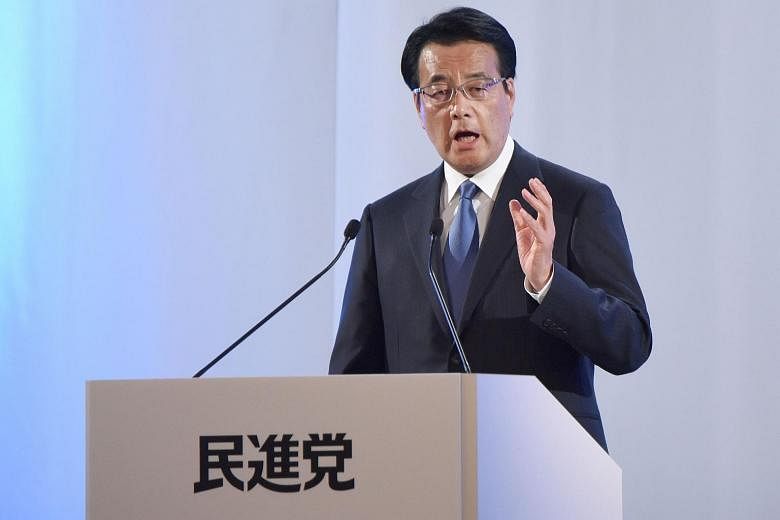In its editorial on April 14, the newspaper terms the request by the Democratic Party (DP) as shameful, pointing out that the party was in charge of the TPP negotiations when it was in power.
Why has the Democratic Party been refusing to take part in Diet deliberations on whether to approve the Trans-Pacific Partnership (TPP) pact?
It is hard to understand the party's stance.
The main opposition party has been turning down the discussions, arguing that the government has failed to fully disclose information on the TPP negotiation process.
A special committee at the House of Representatives to discuss a bill to approve the pact has not held a session since DP members walked out during a Friday meeting.
Three panels at the House of Councillors - including the ones on judicial and general affairs - were scheduled to hold sessions on Tuesday, but were cancelled because of opposition from the DP.
The DP has been criticising the fact that the documents submitted by the government on the negotiations between former TPP minister Akira Amari and US Trade Representative Michael Froman had most of their parts blacked out.
The party's complaints, however, miss the point.
When signing the TPP pact, Japan, the United States and 10 other countries agreed that they would refrain from making the negotiation process public for the first four years after the pact goes into effect.
It would be an apparent violation if Japan were to unveil details of its negotiations with the United States.
As the TPP will promote trade liberalisation to such a great extent, all 12 signatories face various opposition forces within their own countries.
If Japan were to unilaterally disclose details on the TPP negotiation process, it could cause other members trouble and worsen bilateral relations. Tokyo also could undermine national interests by revealing its negotiation tactics.
The government, of course, has a responsibility to be as accountable as possible, but the DP's claims can only be described as missing the mark. The party must end the walkout it has been staging and get back to work in the deliberations as soon as possible.
In the first place, debate on the bill to approve the TPP pact should focus on the outcome of its negotiations.
The government has made available to the public related documents totaling 1,700 pages, while also having held about 300 public briefing sessions.
The DP must make it clear first whether it supports or opposes the outcome of the TPP negotiations and what opinions it has on this issue.
The Democratic Party of Japan, a predecessor of the DP, was in charge of the TPP negotiations while in power.
Despite the record, the party moved suddenly to highlight the blacked-out document during a televised Diet deliberation.
We are simply appalled.
"Details on the negotiation process cannot be disclosed no matter who is in power," Prime Minister Shinzo Abe said. We regard this comment as reasonable.
The DP's demand that Mr Amari be summoned as an unsworn witness to find out more about the TPP negotiation process is questionable too.
Mr Amari was in charge of the negotiations as a member of Mr Abe's Cabinet.
Details on the talks and other related issues have been taken over by his successor, Nobuteru Ishihara, and other relevant officials.
It should be sufficient as long as current Cabinet members and other officials answer any questions.
The ruling and opposition parties are urged to hold in-depth, constructive discussions on the agreements under the TPP pact.
The pact holds great significance as it will help build a huge free trade zone in the Asia-Pacific region and develop the economy of each member country.
The parties have a lot of issues to discuss, such as ways to help the nation's agriculture sector improve its global competitiveness.
* The Yomiuri Shimbun is a member of The Straits Times media partner Asia News Network, an alliance of 22 newspapers.

